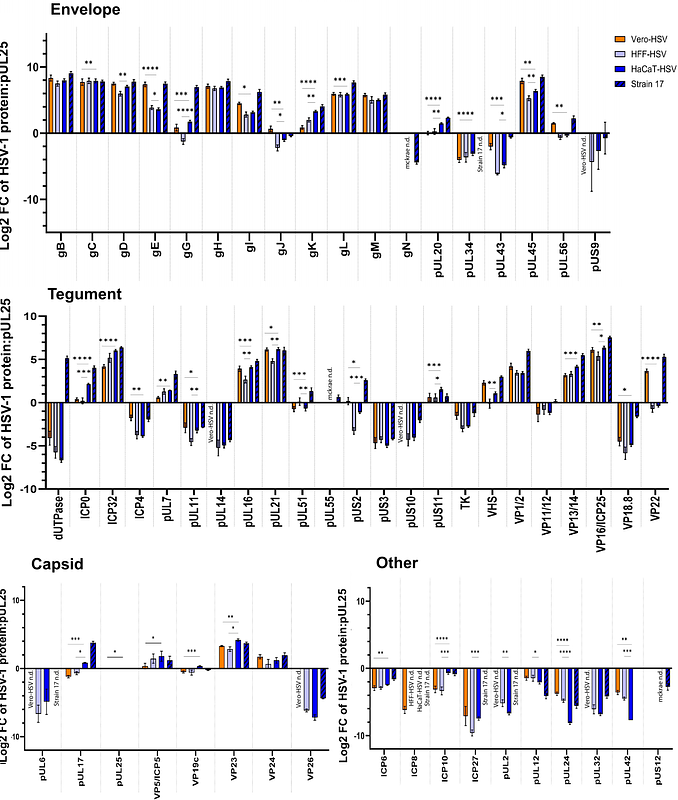The producer cell type of HSV-1 alters the proteomic contents and infectious capacity of virions

The producer cell type of HSV-1 alters the proteomic contents and infectious capacity of virions
Dunn, G. P.; Domanico, L. F.; Taylor, M. P.
AbstractThe cell that a virus replicates in i.e., the producer cell, can alter the macromolecular composition and infectious capacity of the virions that are produced. Herpes Simplex virus type 1 (HSV-1) primarily infects keratinocytes of the epidermis or oral mucosa prior to establishing latency in neurons of the peripheral nervous system, where the virus can persist for the lifetime of the host. Many cell lines that are used to amplify HSV-1 are derived from species and tissue types that are less physiologically relevant to HSV-1 disease. To understand if the producer cell type influences HSV-1 infection, we tested the infectivity of HSV-1 derived from immortalized African green monkey kidney cells (vero), immortalized human keratinocytes (HaCaT), and primary human foreskin fibroblasts (HFF-1). We observed that the producer cell type alters the capacity of HSV-1 to produce viral proteins and infectious virions from infected cells and susceptibility to inhibition of replication by interferon treatment. HaCaT-derived HSV-1 consistently exhibited enhanced replication over HFF-1 or vero-derived virus. To determine if the producer cell type changes the protein composition of virions, we performed an untargeted LC/MS-MS analysis of virions purified from each cell line. Comparison of virion associated proteins revealed quantitative differences in composition of both cellular and viral proteins including ICP0, pUL24 and pUL42. These results highlight the influence that the producer cell-type has on HSV-1 infection outcomes and suggest that cell type specific factors can alter HSV-1 and impact viral replication.